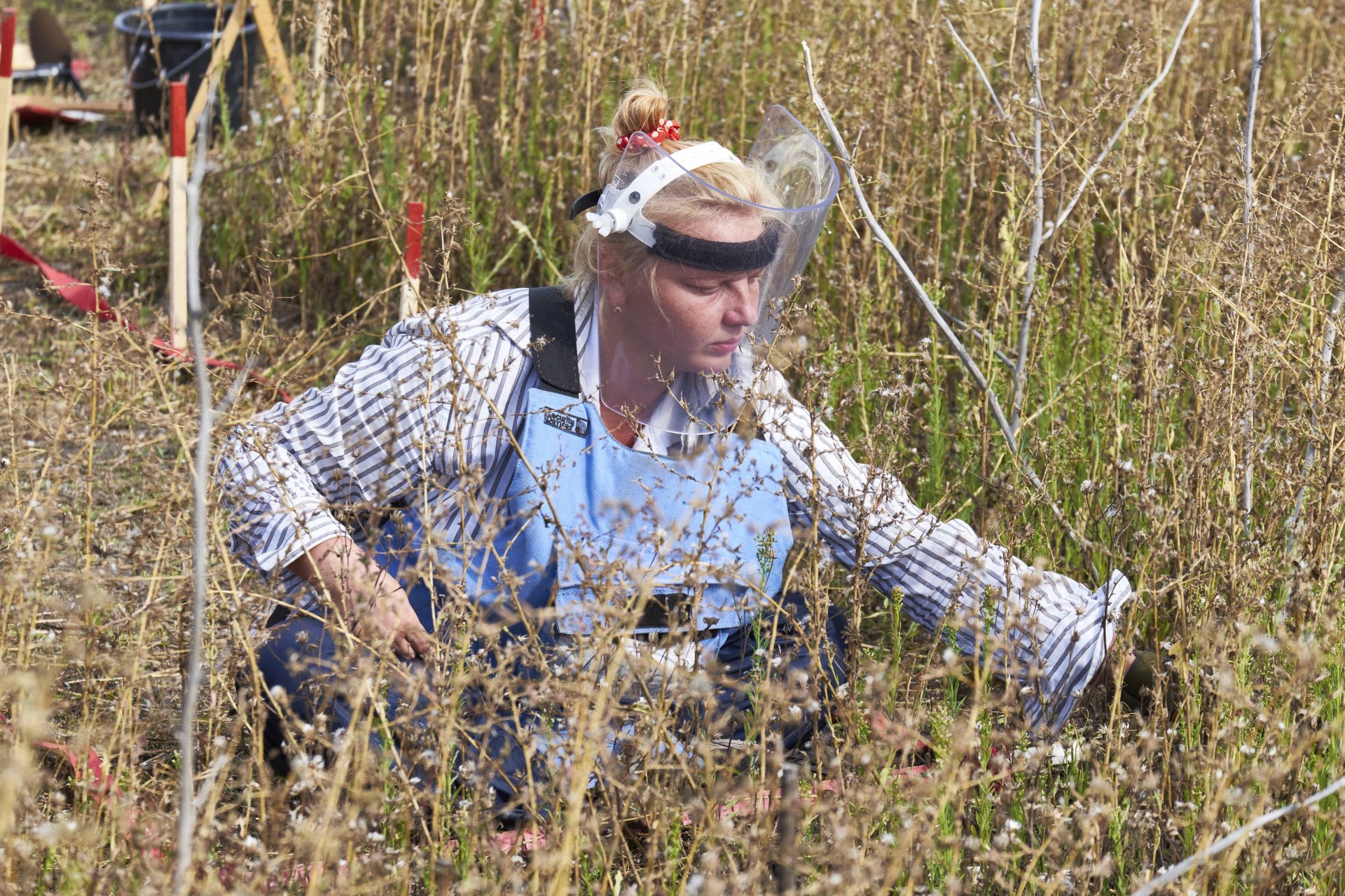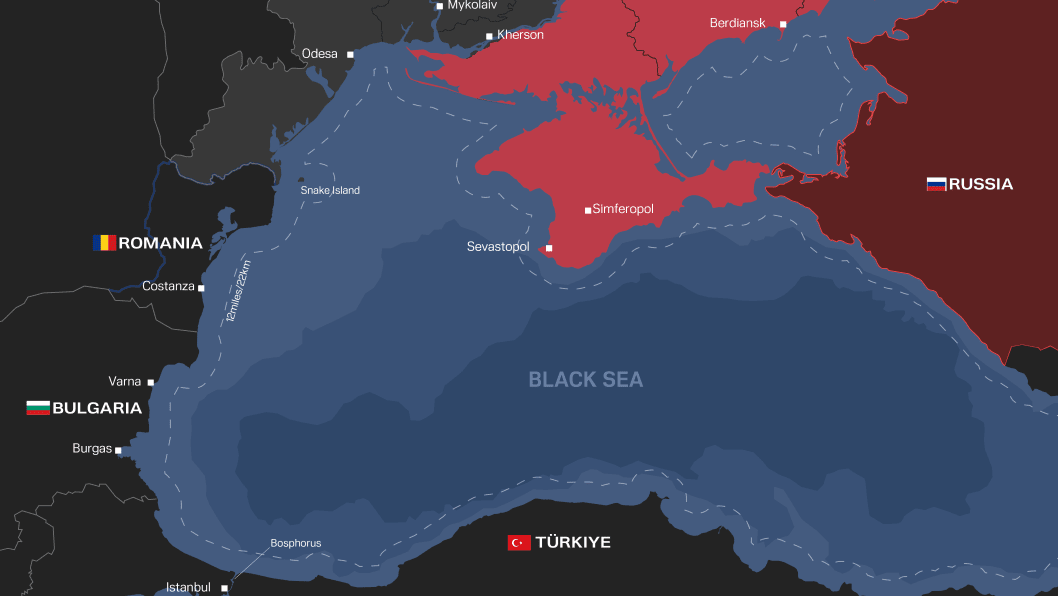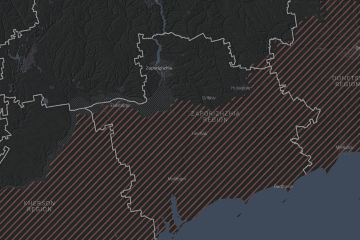- Category
- War in Ukraine
Russia’s Push for Fertilizer Sanctions Relief Is a Trojan Horse for War Tech

In recent ceasefire talks over the Black Sea, Russia demanded more than diplomatic concessions: it asked for a financial lifeline. Tucked into a technical clause of the US-Russia negotiations was a pledge that Washington would help restore Moscow’s access to global agricultural markets, a move that could quietly reopen channels the Kremlin has used to prop up its war effort.
During recent US-Russia negotiations over a potential Black Sea ceasefire, the Kremlin demanded the lifting of restrictions on its Agricultural Bank (Rosselkhozbank) and its return to the SWIFT financial system, moves that would greatly ease its ability to finance and insure shipments.
One of the outcomes of the United States and Russia Expert Groups on the Black Sea was a clause stating, “The United States will help restore Russia’s access to the world market for agricultural and fertilizer exports.” Innocent at first glance, the clause could in fact provide Russia with a backdoor, leveraging fertilizer exports to secretly import critical military tech.
Despite the weight of Western sanctions, the Kremlin’s agricultural exports have grown. In 2023, Moscow exported some $43.5 billion in agri-food products, roughly 10 percent of its total exports.
Bloomberg News reported that by the end of 2024, Russia had exported over 42 million tons of fertilizer, valued at more than $16 billion, surpassing even its pre-war export figures.
Food and fertilizer were deliberately carved out of sanctions to avoid triggering a global hunger crisis. But Russia is now trying to flip that carve-out into a bargaining chip, cloaked in concern for “global food security.”
Russian blockade of Black Sea ports
Amid growing food shortages caused by both sanctions and the blockade of grain exports from Ukraine, Russia transformed vital Black Sea transport routes into mined traps—actions with no real strategic military value, since Ukraine has no traditional navy. The goal being the sabotage of global food supplies, Ukraine’s key export channels in particular.
Before the war, approximately 90% of Ukraine’s agricultural exports, including wheat, corn, and sunflower oil, were transported via Black Sea ports such as Odesa and Mykolaiv.
-3083eb0c13d3cb4b95bbfcb23e7e2bfa.jpg)
Russia’s war against Ukraine led to a 40% increase in global food prices, the European Union reported in 2022, and countries that relied heavily on Ukrainian grain—such as Egypt, Lebanon, Sudan, Ethiopia, Yemen, and Somalia—faced sharp shortages, which further destabilized regions already struggling with food insecurity.
By mid-2022, it was estimated that 400 million additional people worldwide were pushed into food insecurity due to the disruption in food supplies, the United Nations reported.
In response to the growing crisis, the EU established “Solidarity Lanes” in May 2022 as alternative overland routes for moving Ukrainian grain, primarily by rail, but also by road and via the Danube River. The United Nations (UN) and Türkiye brokered the Black Sea Grain Initiative in July 2022, a deal that allowed some Ukrainian ports, all under Ukrainian control but heavily threatened by Russia’s military presence in the region, to resume operations under international monitoring.
These efforts helped increase grain exports and stabilize global food prices. However, in July 2023, Russia withdrew from the initiative and re-established the blockade on Ukrainian ports, citing unmet demands concerning its own agricultural exports, while seeking in vain the resumption of its ammonia exports, which are used to produce fertilizers, through the Togliatti-Odesa pipeline and the reconnection of its state agricultural bank, Rosselkhozbank, to the SWIFT international payments system.

Russia’s fertilizer loopholes
Persisting in their efforts to destabilize the global food supply, Russian missile and drone strikes targeted Ukrainian port cities like Odesa, Mykolaiv, and Chornomorsk, severely damaging port infrastructure and grain storage facilities. In Chornomorsk alone, Russia destroyed 60,000 tons of grain. The Black Sea Grain Initiative ultimately collapsed.
Throughout 2022 and 2023, Russia’s state-run propaganda apparatus aggressively pushed the narrative that Western sanctions, not Russia’s war, were the root cause of global food insecurity. In fact, Russia itself continued to export large quantities of grain and fertilizers.
At the center of this rebound were Russian chemical giants like UralChem and EuroChem. The latter, notably, has largely escaped the brunt of sanctions, its footprint in global agriculture often used as a shield against Western sanctions.
Both UralChem and EuroChem supply nitric acid and other critical chemicals used in the production of artillery shells and explosives. Through documented transfers, they’ve delivered tens of thousands of tons of these materials to Rostec, the Russian state-owned defense conglomerate, and other arms manufacturers.
Ukraine’s Drones Challenge Russian Navy and Clear Ports
Ukraine used drones to clear the way for vital maritime trade by targeting and disabling key elements of the Russian navy, effectively unblocking crucial ports.
In 2022, Ukrainian forces struck high-value Russian targets, including the Moskva, the flagship of the Black Sea fleet, with a Neptune missile. Additionally, Ukraine targeted the Admiral Makarov frigate and the Ivan Golubets minesweeper using naval drones, further disrupting Russia’s naval operations.
Ukraine, by leveraging its drone capabilities, particularly deploying “mosquito” tactics, (a strategy using small, fast drones to wear down and weaken larger Russian naval assets), managed to drive most Russian ships out of the Black Sea, and as of today, it’s proving difficult for Russia to replace its naval losses.
Additionally, Turkey’s closure of the Bosphorus and Dardanelles straits to Russian military vessels after the full-scale invasion was crucial to Ukraine’s defense, barring Russia from leveraging its naval superiority to capture Odesa, Mykolaiv, and other regions.
Russia’s dual-use goods
Russia claims it seeks to have sanctions lifted in order to resume grain exports. However, easing restrictions, particularly on Rosselkhozbank and its shipping fleet, could pave the way for acquiring goods that have both civilian and military applications.
The global trade in dual-use goods—products with both civilian and military applications—remains a significant challenge for international compliance and security. Items ranging from aerospace and propulsion technologies to telecommunications and nuclear materials are classified as dual-use.
Goods such as drones, GPS technology, and night vision equipment play a crucial role not only in commercial sectors but also in military operations, raising concerns over their dual-purpose potential and the implications for global security.
In a report by Defense News, experts highlighted the case of Integrated Robotics Technologies (IRT), a Russian company that marketed drones as “agricultural tools” but later adapted them for military use. These drones, initially sold for pipeline inspections and crop monitoring, were repurposed into suicide drones and surveillance tools for the Russian military.
Russia’s startup IRT avoided sanctions by labeling its products as civilian technologies, which allowed them to bypass export controls and find their way into military operations.
In response, some Western governments align on the need for stricter oversight. Experts from the European Union and the US State Department have pointed out that while the Russian government frames the sanctions relief as critical for global food stability, it may very well be laying the groundwork for military expansion.
Without robust inspection regimes and strict controls on what can and cannot be traded, dual-use technologies can, and have been, easily smuggled under the guise of agricultural imports.
After the Black Sea deal outcome, Anitta Hipper, European Commission spokesperson, stated that for the EU, “The unconditional withdrawal of all Russian military forces from the entire territory of Ukraine would be one of the main preconditions to amend or lift sanctions.”
-c6522ae9e5320af1cc92504c0aaa1b34.png)
-554f0711f15a880af68b2550a739eee4.jpg)

-29a1a43aba23f9bb779a1ac8b98d2121.jpeg)

-0666d38c3abb51dc66be9ab82b971e20.jpg)
-35249c104385ca158fb62273fbd31476.jpg)

